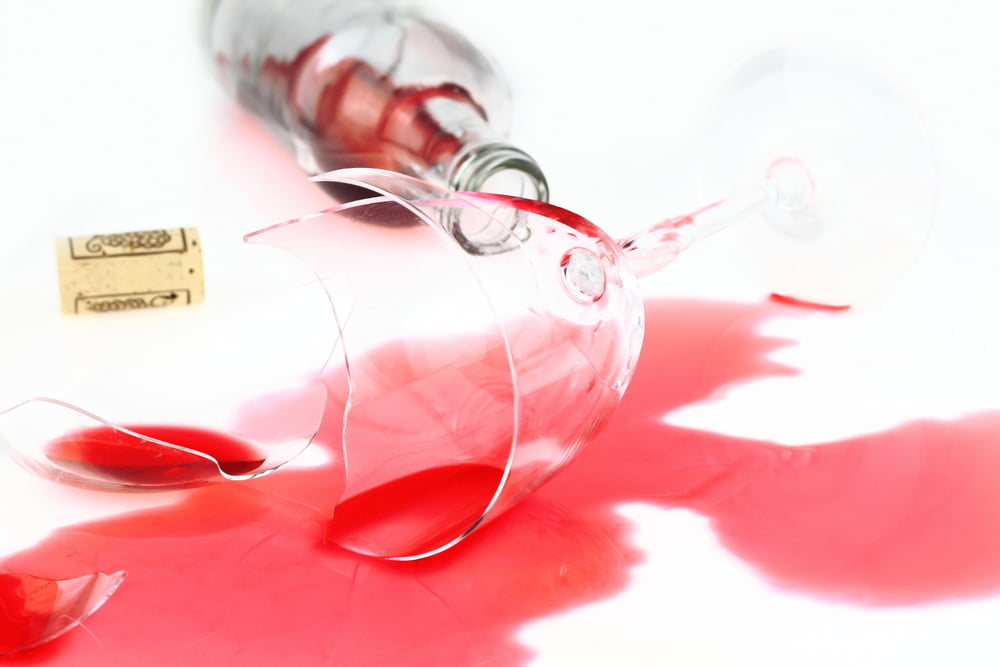Alcohol nose is a condition that disfigures and discolors the nose. Medically, this is referred to as Rhinophyma, but people also call this condition “alcoholic nose”, “whiskey nose”, and “gin blossom nose”. It’s a common reaction some people experience when they drink alcohol. Alcohol nose causes a person’s face, especially the cheeks and nose, to become red and sometimes even swollen.
But is alcohol nose really caused by alcohol abuse? Learn the causes, symptoms, and ways to prevent or treat this condition here. If you need help getting your alcohol use under control, Crestview Recovery provides addiction treatment in our alcohol rehab program in Portland, Oregon. Call us today to learn more!
What Are the Symptoms of Alcohol Nose?
The symptoms and severity of alcohol nose can vary greatly from person to person. Some individuals might experience only mild redness, while others might have more intense and visible reactions. The intensity of the reaction can also be influenced by factors such as the amount of alcohol consumed, genetics, and overall health.
The primary symptoms of alcohol nose can be observed through these visible signs:
- Red or Flushed Skin: The most visible sign is the pronounced redness of the skin, particularly on the cheeks and nose. The skin might appear significantly redder than usual and can range from a mild blush to a deeper shade of red.
- Swelling: In some cases, alcohol nose can also lead to mild swelling, causing the nose and cheeks to appear slightly puffy. This swelling is due to the increased blood flow and dilation of blood vessels.
- Small Blood Vessels: On close inspection, you might notice small, dilated blood vessels (capillaries) on the surface of the skin. These can appear as fine red lines or streaks.
Alcohol nose can also cause the affected areas to feel warm. This sensation is a result of the blood vessels in the skin dilating, causing blood to rush to the surface of the skin.
Can Alcohol Consumption Cause a Red or Swollen Nose?
Yes, alcohol consumption can indeed cause a red or swollen nose. When some individuals consume alcohol, especially in larger quantities, their body’s reaction can lead to the dilation of blood vessels in the skin. This dilation results in increased blood flow to the surface of the skin, particularly in the face. As a result, the skin, including the nose, can become visibly red and flushed.
In addition to the redness, alcohol’s effects on blood vessel dilation can also lead to mild swelling in the nose and surrounding areas. This swelling is a consequence of the increased blood flow and can contribute to the overall appearance of a slightly puffy or swollen nose.
The redness and swelling are components of the alcohol flush reaction, which is a common response that some people experience due to difficulties in breaking down acetaldehyde, a byproduct of alcohol metabolism. While these reactions might be temporary and subside once alcohol is metabolized, they can vary in intensity based on factors such as genetics, alcohol type, and overall health.
Is Alcohol Nose a Sign of Alcoholism?
While alcohol nose can be an indicator of a person’s sensitivity to alcohol, it should not be solely used to diagnose alcoholism. Alcoholism involves a complex interplay of physical, psychological, and social factors. If you or someone you know is concerned about their alcohol consumption or its impact on your health and well-being, it’s important to seek professional help, such as a drug and alcohol treatment center, like Crestview Recovery. Our team offers comprehensive treatment for alcoholism in our addiction treatment programs in Portland, Oregon.
Some individuals who experience alcohol nose might be more sensitive to alcohol’s effects due to genetic factors. This sensitivity can lead to a more pronounced alcohol flush reaction even with moderate alcohol consumption. However, this reaction is not exclusive to those with alcoholism and can occur in individuals who don’t have a problem with alcohol.
What Are the Signs of Alcoholism?
Alcoholism, or alcohol use disorder, is characterized by patterns of problematic alcohol consumption that lead to significant distress or impairment in daily life. Signs of alcoholism can include:
- Craving: A strong urge or desire to drink alcohol.
- Loss of Control: Difficulty controlling the amount of alcohol consumed once drinking begins.
- Tolerance: Needing increasing amounts of alcohol to achieve the desired effects.
- Withdrawal: Experiencing physical and psychological symptoms when alcohol use is stopped or reduced.
- Neglect of Responsibilities: Neglecting work, school, or other important obligations due to alcohol use.
- Continued Use Despite Consequences: Continued drinking despite negative consequences on health, relationships, or other aspects of life.
How Does Alcohol Affect the Skin, Particularly the Nose?
Alcohol can have a range of effects on the skin, both short-term and long-term. The effects of alcohol consumption are influenced by various biological processes and can impact not only your nose but also other areas of your body, such as your face or chest.
Short-Term Effects of Alcohol on Skin
Dehydration: Alcohol is a diuretic, which means it increases urine production and can lead to dehydration. Dehydrated skin can appear dry, flaky, and less plump. This effect can be more noticeable in areas like the nose, causing it to appear rough and possibly exacerbating alcohol nose symptoms.
Dilation of Blood Vessels: Alcohol consumption causes blood vessels to dilate, resulting in increased blood flow to the skin’s surface. This effect contributes to the flushed and reddened appearance seen in alcohol nose. It can also make other areas of the skin, such as the cheeks, appear red.
Inflammation: Alcohol consumption can trigger inflammation in the body, including the skin. Inflammatory processes can lead to skin sensitivity, redness, and irritation.
Long-Term Effects of Alcohol on Skin
Accelerated Aging: Chronic alcohol consumption can accelerate the aging process of the skin. It can lead to the breakdown of collagen and elastin, which are essential for maintaining skin firmness and elasticity. This can result in the formation of wrinkles, fine lines, and sagging skin.
Skin Disorders: Alcohol abuse can worsen or trigger certain skin conditions, such as rosacea. Rosacea is a chronic skin condition characterized by facial redness, visible blood vessels, and sometimes small, red bumps. Alcohol’s ability to dilate blood vessels can exacerbate these symptoms.
Reduced Healing: Alcohol can impair the body’s ability to heal. This can be particularly problematic for skin injuries, as impaired healing can lead to delayed recovery from wounds, cuts, and other skin issues.
Skin Tone and Texture: Alcohol abuse can lead to an uneven skin tone and texture due to disruptions in blood circulation and collagen production. This can result in a dull complexion and an overall unhealthy appearance.
Acne and Oil Production: Alcohol can disrupt the balance of hormones that regulate oil production in the skin. This disruption can contribute to increased oiliness, which in turn may lead to the development of acne on various areas of the body.
Are There Any Remedies for Alcohol Nose?
Yes, there are a few natural remedies and topical treatments that may alleviate the symptoms of alcohol nose. However, if alcohol nose causes you significant discomfort or concern, it’s important that you consult with your healthcare provider for guidance and treatment.
It’s a good idea to stay well-hydrated before, during, and after alcohol consumption by drinking water. Being well-hydrated can help counteract the dehydrating effects of alcohol, potentially minimizing the severity of skin redness and flushing. Consuming foods rich in antioxidants like fruits and vegetables may also support skin health and mitigate inflammation. Some individuals have success in minimizing the redness that alcohol can cause by applying a cold compress to the affected areas. The cold compress temporarily constricts blood vessels which reduces redness because there’s less blood filling the vessels on your nose.
There are some topical treatments that can soothe irritated skin, such as aloe vera, chamomile, or green tea extract. You may also use color-correcting makeup to hide redness or affected areas of your skin. These remedies may mask or temporarily treat alcohol nose symptoms but it’s important to note that they do not eliminate the reaction.
Does Alcohol Nose Go Away if I Stop Drinking?

Alcohol nose may go away if you stop drinking. Abstaining from alcohol may lead to a reduction in the frequency and intensity of alcohol nose reactions. The alcohol flush reaction that is alcohol nose is primarily triggered by the body’s struggle to metabolize acetaldehyde, which is the byproduct of alcohol metabolism. When you drink alcohol, acetaldehyde builds up because the body cannot break it down as quickly as you may be consuming alcohol. This build-up leads to the skin discoloration and swelling that characterizes alcohol nose.
Therefore, if you stop drinking alcohol, your body will be able to metabolize the byproduct of alcohol more easily. This may decrease the appearance of alcohol nose symptoms. Since people react to alcohol in different ways, the condition of alcohol nose can also differ from one person to the next. This means that stopping alcohol use may eliminate alcohol nose completely, for some, it may only lessen symptoms.
Can Alcohol Nose Be a Sign of an Underlying Health Issue?
Alcohol nose doesn’t always imply other health issues but it can serve as a potential indicator for health concerns such as:
- Alcohol Sensitivity: Some people naturally have a genetic predisposition to a more intense alcohol flush reaction. This sensitivity can result in pronounced redness and swelling of the face, commonly referred to as alcohol nose.
- Alcohol Intolerance: Individuals who experience adverse reactions to alcohol beyond the typical symptoms of intoxication, such as severe flushing, nausea, or rapid heart rate, might have alcohol intolerance. This could be due to enzyme deficiencies or other metabolic issues.
- Allergies: Alcohol itself can contain allergens or histamine-releasing compounds that could trigger an allergic response in sensitive individuals. This might manifest as redness and swelling in the face, including the nose.
- Histamine Intolerance: Histamine intolerance is a condition where the body struggles to break down histamine, a compound that can cause dilation of blood vessels. Alcohol can stimulate histamine release, exacerbating symptoms in those with histamine intolerance.
- Rosacea: Rosacea is a chronic skin condition characterized by facial redness, visible blood vessels, and sometimes small, red bumps. Alcohol, by causing blood vessels to dilate, can worsen symptoms in individuals with rosacea.
- Underlying Health Conditions: In rare cases, persistent alcohol nose could potentially be a sign of underlying health issues, such as certain types of cancer or autoimmune disorders. However, it’s important to note that these cases are exceedingly uncommon and should be assessed by a medical professional.
What Are Some Ways to Prevent or Minimize Alcohol Nose?
Here are some tips on how to prevent or minimize alcohol nose:
Moderation:
Limit your alcohol consumption to moderate levels. Drinking in moderation reduces the chances of triggering a strong alcohol flush reaction, including redness and swelling of the nose.
Choose Wisely:
Opt for alcoholic beverages that have lower alcohol content, such as beer or wine, as opposed to stronger spirits. Higher alcohol content can increase the likelihood of experiencing alcohol nose.
Hydration:
Stay well-hydrated by drinking water before, during, and after alcohol consumption. Adequate hydration can help mitigate the dehydrating effects of alcohol and potentially reduce the severity of alcohol nose.
Antihistamines:
Over-the-counter antihistamines taken before consuming alcohol may help to block histamine release, which can contribute to blood vessel dilation and flushing. However, consult a healthcare professional before using any medications for this purpose.
Avoid Trigger Foods:
Certain foods, such as spicy dishes, can exacerbate alcohol nose symptoms. Avoiding or minimizing these trigger foods when consuming alcohol may help reduce the intensity of the reaction.
Topical Creams:
Applying a skin-calming cream or lotion with ingredients like aloe vera or green tea extract to your face before consuming alcohol may help minimize skin redness and irritation.
Cold Compress:
Opt for alcoholic beverages that have lower alcohol content, such as beer or wine, as opposed to stronger spirits. Higher alcohol content can increase theIf you feel your face flushing, applying a cold compress to your cheeks and nose can help constrict blood vessels and reduce redness.
Color-Correcting Makeup:
For those who wish to conceal the redness, using color-correcting makeup can help neutralize the flushed appearance of the skin.
Check for Allergies:
If you suspect that specific ingredients in alcoholic beverages trigger the reaction, consider checking for allergies or intolerances and adjusting your choices accordingly.
Consult a Professional:
If alcohol nose is causing significant discomfort or concerns, consulting a healthcare professional can provide personalized advice, especially if you suspect an underlying health issue.
How Can Alcohol Nose Be Treated?
Treating alcohol nose involves both addressing the immediate symptoms and addressing any underlying alcohol abuse issues. For managing the physical symptoms of alcohol nose, various remedies, such as applying topical creams containing soothing ingredients like aloe vera, can provide relief from redness and irritation. Cold compresses can also temporarily alleviate blood vessel dilation and redness. In cases where cosmetic concerns are prominent, color-correcting makeup can help conceal the redness.
However, for those who experience alcohol nose as a result of excessive alcohol consumption and potential alcohol abuse, seeking professional help is essential. Alcohol rehab services such as detox programs, residential treatment, and outpatient programs, can play a crucial role in managing alcohol abuse and its associated effects, including alcohol nose.
Detox Programs: Detoxification is often the initial step in addressing alcohol abuse. Medically supervised detox programs help individuals safely withdraw from alcohol and manage withdrawal symptoms. This is important for those who have developed a physical dependence on alcohol
Residential Treatment: In Crestview Recovery’s residential addiction treatment program in Portland, individuals receive comprehensive care in a controlled environment. Our team provides therapy, counseling, and other interventions to address the underlying causes of alcohol abuse.
Outpatient Programs: For less severe cases of alcohol abuse or for continuing treatment, our outpatient alcohol rehab in Portland offers flexibility by allowing individuals to attend therapy and counseling sessions while still living at home. This option is suitable for those with less severe alcohol abuse issues or for individuals transitioning from a residential program.
These alcohol rehab services not only address alcohol abuse but also provide tools and strategies to manage triggers and prevent relapse. By participating in therapy, counseling, and support groups, individuals can develop coping mechanisms and gain insights into their behaviors and patterns related to alcohol use.
Contact Crestview Recovery for Help With Alcohol Addiction
Our team at Crestview Recovery understands the complexities of alcohol abuse and will guide you on a path to sobriety and healing. We have addiction treatment centers throughout Oregon to provide access and comprehensive treatment to as many people as possible. Here, you will receive personalized treatment and the full continuum of care.
Contact our team today to learn more about alcohol addiction and how we can help you! Start your recovery today and take a step towards a happy, healthy life.

































